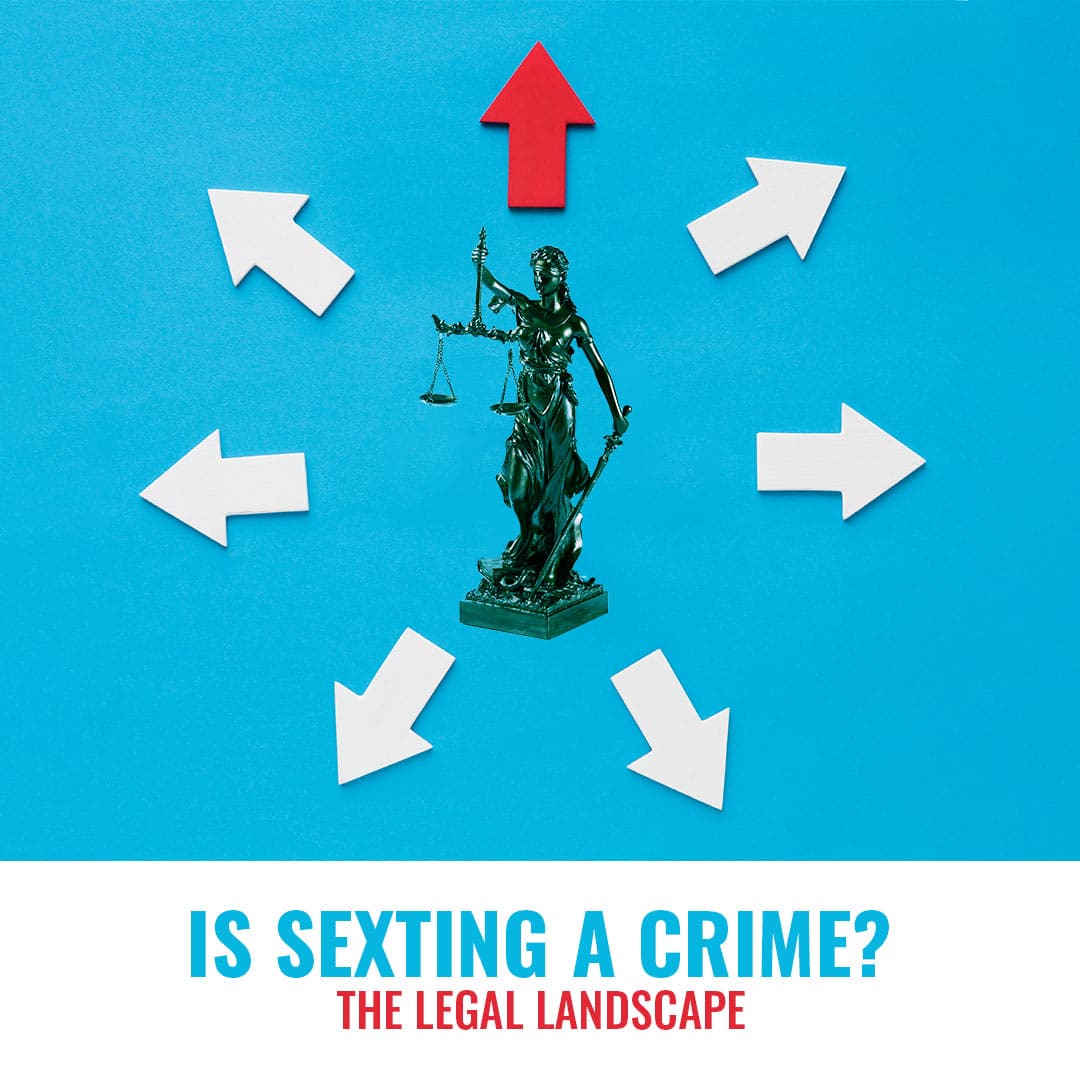The age of technology has brought unparalleled convenience to our lives, but it has also brought a host of new dangers, especially for children. One such danger is the prevalence of sexting, which involves sending sexually explicit images or messages via electronic devices. While it may seem harmless, sexting can have severe legal consequences, especially if children are involved. In this blog post, we will discuss whether sexting is a crime and the basics of sexting and child pornography laws so that you can educate yourself and your loved ones on the dangers of these actions.
Is Sexting Considered a Crime?
In most cases, sexting by consenting adults of legal age is considered consensual and not illegal. However, sexting involving minors is entirely different, as it could be deemed a criminal offense. In several states, sexting among minors is a crime, and minors who engage in this activity can be charged with distributing and possessing child pornography by the court. This charge could potentially lead to imprisonment and criminal records.
It is essential to understand that the age of consent for sexual activities varies from one jurisdiction to another. While some states have set their age limit at 16, others have put it at 17 or 18. Hence, checking the age of consent in your state is essential, as any sexual activity with minors under the age limit could be considered a criminal offense.
Another crucial factor to consider in sexting is the type of content shared. Any sexually explicit content that involves minors is child pornography – a serious crime. Thus, sexting involving minors and graphic content can lead to criminal charges and sex offender registration.
When it comes to sexting among adults, the laws are generally more relaxed. However, there are still situations where it could result in criminal charges. For example, if the sexting involved coercion or blackmail, it could lead to charges of harassment or extortion, depending on the severity of the situation.
Sexting and Child Pornography Laws
While the laws vary from state to state, most states classify sexting involving minors as child pornography, a federal offense. This means the sender and the receiver of sexually explicit images can face jail time, sex offender registration, and other severe legal consequences. Furthermore, the repercussions of sexting can extend beyond criminal charges. It can lead to social embarrassment, emotional distress, and even suicide. Therefore, it is essential to educate young people about the risks of sexting and encourage them to avoid it at all costs.
The consequences of child pornography are severe and can affect a person’s life forever. Child pornography is not a victimless crime; it can lead to significant short- and long-term harm to the children involved. Those convicted of child pornography offenses face the possibility of lengthy prison sentences and must register as sex offenders. This can impact their ability to find employment, housing, and even relationships. Furthermore, they may be subject to intense social stigma and scrutiny, leading to ostracism and a loss of reputation.
Consequences of Unwanted Distribution
Many consequences are associated with distributing sexual content in an unwanted or non-consensual way. Here are three of the most common ones.
1. Emotional and Psychological Damage
The first and most severe impact of the unwanted distribution of sexual images is the emotional and psychological damage(1) caused by it. The victim may feel shame, humiliation, embarrassment, and depression, leading to anxiety and other mental disorders. They may experience trauma and have difficulty coping with the memories of the incident. They may also suffer long-term effects such as low self-esteem and trust issues.
2. Legal Consequences
The unwanted distribution of sexual images is a crime and can lead to severe legal consequences. The victim can press charges against the perpetrator for invasion of privacy or sexual harassment. In some states, revenge porn laws make it illegal to distribute explicit images without consent. If convicted, the offender may face jail time, heavy fines, and a criminal record, affecting their future employment and social acceptance prospects.
3. Social Alienation
Unwanted distribution of sexual images can also lead to social alienation, where the victim may lose friends, family, and work colleagues due to the perceived shame associated with their situation. They may also face ostracism, online bullying, and harassment. This can further exacerbate the victim’s emotional and psychological state and significantly impact their quality of life.
Conclusion
In conclusion, sexting is a complicated activity when it comes to the law. The bottom line is that sexting minors with explicit content is illegal and could result in severe legal consequences. On the other hand, sexting among consenting adults is not necessarily a crime, but it is essential to avoid coercion, internet blackmail, or internet sextortion. It is advisable to approach the practice responsibly and to be aware of the laws that govern sexting in your state. Knowing the law and its legal implications is the best way to stay safe and avoid trouble.
Resources:
DISCLAIMER: THIS POST IS FOR INFORMATIONAL PURPOSES ONLY AND IS NOT TO BE CONSIDERED LEGAL ADVICE ON ANY SUBJECT MATTER. DIGITAL FORENSICS CORP. IS NOT A LAWFIRM AND DOES NOT PROVIDE LEGAL ADVICE OR SERVICES. By viewing posts, the reader understands there is no attorney-client relationship, the post should not be used as a substitute for legal advice from a licensed professional attorney, and readers are urged to consult their own legal counsel on any specific legal questions concerning a specific situation.







